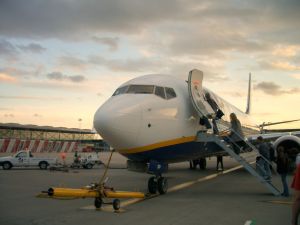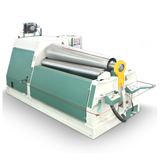Increasingly popular strong, light carbon fibre composites (or carbon fibre reinforced plastics) were once too difficult to recycle, so went to landfill.
In the past decade researchers at Nottingham University in the United Kingdom, led by Dr Steve Pickering, have developed ways to recycle carbon fibre composites. They have worked with Boeing since 2006.
Now Boeing plans to invest $1,000,000 per year in a strategic research collaboration – an inclusive partnership in which Boeing will collaborate with the university in all its composites recycling activities.
Sir Roger Bone, President of Boeing UK, launched this major new collaborative investment in carbon fibre recycling research involving Boeing Commercial Airplanes and The University of Nottingham’s Faculty of Engineering when he visited Nottingham.
First introduced into military aircraft 30 years ago, carbon fibre composites are stronger and lighter than any other commonly available material. This helps reduce fuel consumption and carbon emissions in aircraft making modern passenger planes more efficient and cheaper to fly. Advanced composite materials comprise half the empty weight of Boeing’s new 787 Dreamliner.
"Boeing wants to be able to recycle composite materials from manufacturing operations to improve product sustainability and to develop more efficient ways of recycling aircraft retired from commercial service," Sir Roger Bone, President of Boeing UK, said.
"The ultimate aim is to insert recycled materials back into the manufacturing process, for instance on the plane in non-structural sustainable interiors applications, or in the tooling we use for manufacture. This work helps us create environmental solutions throughout the lifecycle of Boeing products."
Professor Andy Long, Dean of the Faculty of Engineering, Professor of Mechanics of Materials and Director of the Institute for Aerospace Technology said the agreement formalised a long-term working commitment between The University of Nottingham and Boeing.
"We have been working together for over six years on mutual R&D activities in aircraft recycling as well as novel applications for power electronics. We share the aims of improving environmental performance of aircraft and using materials more sustainably," Long said.
In the strategic collaboration on composites recycling Boeing will provide funding of $1,000,000 per year initially for three years, but with the intention to continue with a rolling programme.
The collaboration with Boeing will further develop; recycling processes, technology to process recycled fibre into new applications, and new products using recycled materials, in collaboration with other suppliers.
Boeing was a founding member six years ago of AFRA, the Aircraft Fleet Recycling Association. AFRA is a non-profit standards-setting association for the aerospace industry. Nottingham joined two years later, and a significant part of this agreement will involve working with several other AFRA member companies on the very difficult challenge of aircraft interiors recycling.
"Through this work, Boeing and Nottingham intend to develop quality and performance standards for recycled aerospace carbon fibre," Bill Carberry, Project Manager of Aircraft and Composite Recycling at Boeing and Deputy Director of the Aircraft Fleet Recycling Association, said.


-160x160-state_article-rel-cat.png)








-160x160-state_article-rel-cat.png)












